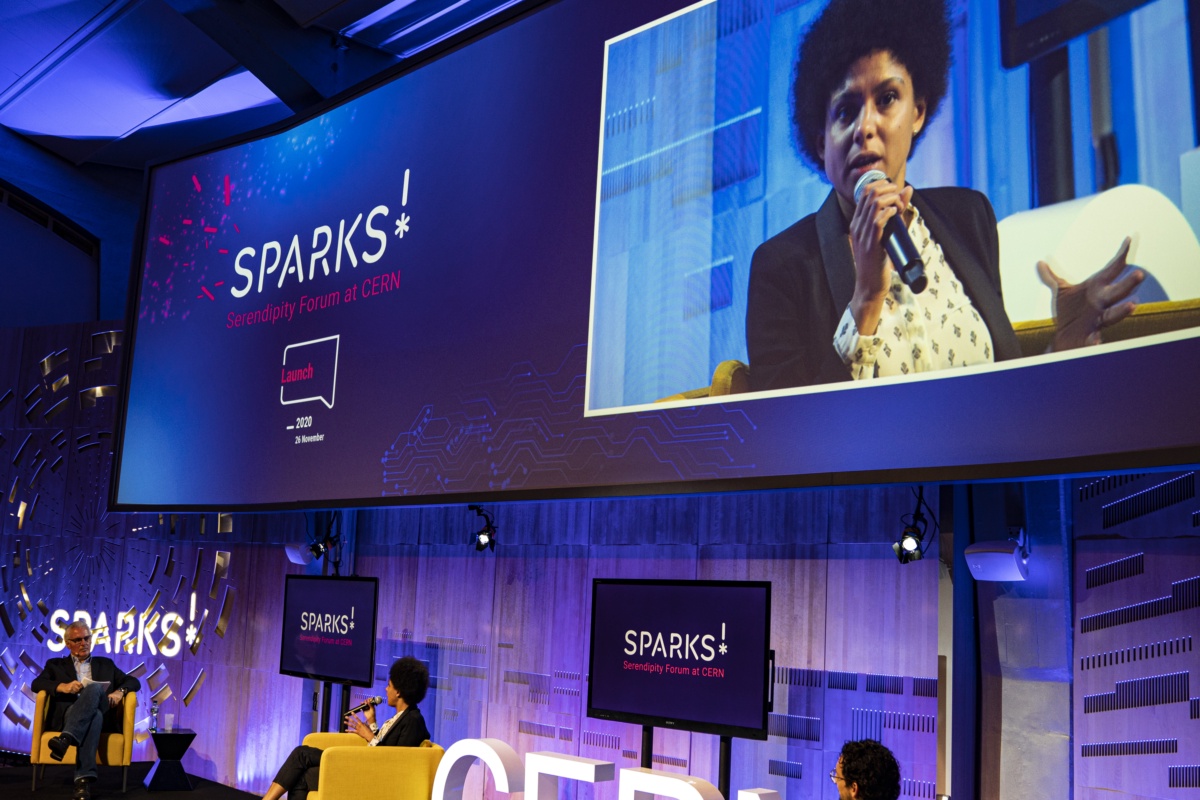Thursday 26 November saw the launch of Sparks!, a new science innovation forum that opens with the theme of artificial intelligence (AI). After an introduction from CERN’s Director for International Relations, Charlotte Warakaulle, host Bruno Giussani, Global Curator of TED, explained the principles of AI, where computers solve complex problems previously only solved by humans. The event discussed how prevalent the use of AI is in our daily lives, from search engines to digital assistance, as well as its use in research fields such as medicine, astronomy and climatology. It also addressed questions of how society wants to use AI in the future.
CERN already uses many AI techniques, mostly based on machine learning. Physicists Jennifer Ngadiuba from CMS and Michael Kagan from ATLAS explained how AI helps to analyse data from the Large Hadron Collider. CERN openlab researcher Sofia Vallecorsa outlined the use of AI to replace experimental simulations by reproducing a new theory, comparing it to experimental data, then validating or falsifying it.
Anima Anandkumar, Bren professor at Caltech Computing and Mathematical Science department and a director of machine learning research at NVIDIA summarised some of the current breakthroughs in AI and the status of AI research today. Francesca Rossi, AI Ethics Global Leader at IBM, summarised the ethical questions surrounding AI. Stuart Russell, Professor in Computer Science and Engineering at Berkeley University, then spoke about the evolution of strong AI.
The last speaker was AI pioneer Professor Jürgen Schmidhuber who explained that every five years computers get roughly ten times faster. Soon, we will have cheap computers, with the raw computational power of a human brain. If the trend continues, in a few decades we will have even cheaper computers with the raw computational power of ten billion human brains, so over time, he claims, “AI will become much more creative than humans are.”
Bruno Giussani concluded by linking creativity and innovation in an invitation for Sparks! 2021. The event will take place on 17-18 September 2021 at CERN and at HEAD (Geneva University of Art and Design), and many of the launch speakers will be involved. Confirmed participants so far include Daniel Kahneman, Nobel Prize winner; Jaan Tallin, co-founder of Skype and the Center for Centre for the Study of Existential Risk; Hiroaki Kitano, President and CEO of Sony Computer Science Laboratories; Koray Kavukcuoglu, Vice President of Research of DeepMind. An online forum at sparks.cern is already open for people to submit questions.
Sparks is a CERN outreach event and part of the CERN & Society programme whose activities are only possible thanks to voluntary support received from partners, in particular Rolex and its long-standing association with the Organization. The 2020-2021 SPARKS is also supported by Edmond de Rothschild and the Didier et Martine Primat Foundation.
Watch the launch event of Sparks! and get ready for the 2021 event.

